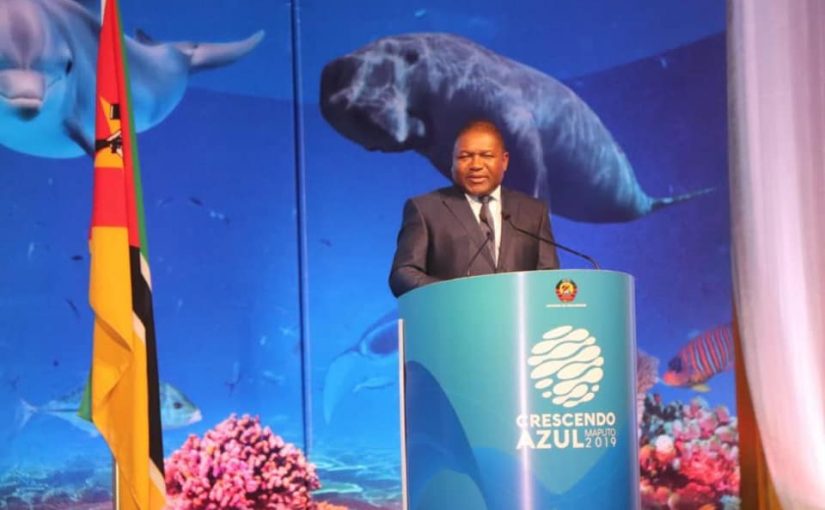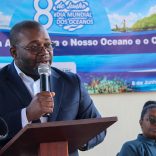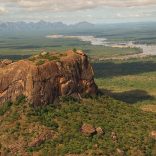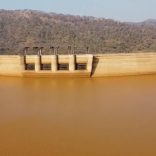Mozambique begins countrywide elephant aerial survey, seven years after last count
Nyusi opens conference on ‘blue economy’

Photo: Presidencia da Republica de Moçambique via Facebook
Mozambican President Filipe Nyusi said on Thursday that the international conference “Crescendo Azul” (“Growing Blue”) should act as a catalyst for more and better actions to protect the oceans and develop a “sustainable blue economy”.
Nyusi was speaking at the opening ceremony of the two day conference, meeting in Maputo under the theme “Sustainable and Shared Governance of the Sea”, which has brought together hundreds of participants from across the globe.
“In organising this international conference that we call ‘Growing Blue’, we are doing so not just as a platform for dialogue, through which we are joining the global movement, but also to express the desire, together with our neighbours in the western Indian Ocean region, to contribute to an ever better future for our planet”, said Nyusi.
Mozambique, the President continued, is a nation rich in marine biodiversity, and is home to such oceanic giants as whales, dolphins, turtles and dugongs, “species which are a treasure, not only for Mozambicans, but for all of humanity”.
“For us Mozambicans”, he said, “the ocean links cultures and civilisations, makes trade and economic activity viable, and is the means that brings Mozambique to the world and the world to Mozambique “.
He pointed out that maritime transport carries by far the largest share of international trade, and accounts for about 80 per cent of the total amount of merchandise traded.
The ocean, Nyusi said, should be viewed as a gift to assist in the eradication of poverty. “Let us know how to make the best use of the sea as a place of peace, security, tranquillity and as a platform for the friendly exchange between the cultures and people of the entire world”, he urged.
Since Mozambique has a coastline that extends for 2,700 kilometres, he added, the country has added duties and responsibilities for defending the health of the oceans.
As an example of these responsibilities, Nyusi said the government is drawing up a national plan for combating marine waste, which will include “vigorous measures” against the dumping of plastic waste in the sea.
He stressed the importance of such coastal ecosystems as mangrove forests which play a critical role in preventing coastal erosion and providing a habitat that acts as a nursery for many marine species. It was thanks to the mangroves, Nyusi added, that Mozambique has achieved fame for its crustaceans (such as prawns, lobsters and crabs).
The country is now taking action to halt the devastation of the mangrove forests, he said, and is drawing up a plan to restore and manage these forests.
More than 60 per cent of the Mozambican population live in coastal areas, and they should act as guardians of nature. Nyusi said the government wants coastal communities to adopt good practices in their day-to-day relationship with the ocean – because only thus can they look after the planet, their own lives and those of future generations.
The World Bank representative in Mozambique, Mark Lundell, told the conference that the bank has invested about 4.5 billion dollars to support coastal development throughout the world, and plans to spend a further two billion for the same purpose.
He said much of this sum would be used to support regional fisheries programmes in the Pacific and in Africa, to fight all forms of marine pollution, and to protect critical marine habitats.
“The oceans support economies and livelihoods, in many ways”, Lundell said. “Annual world marine fisheries production is greater than 80 million tonnes and contributes more than 260 billion dollars to global GDP”.
But he called for intelligent use of the oceans, warning that “the health of our oceans is rapidly deteriorating”. Lundell put a price tag on this, saying that the decline is costing about 80 billion dollars a year.
He also pointed to the environmental role of the oceans as the planet’s largest carbon sink. “Not all of us express this importance in actions needed to maintain the health of the oceans and of our planet”, Lundell said.












Leave a Reply
Be the First to Comment!
You must be logged in to post a comment.
You must be logged in to post a comment.